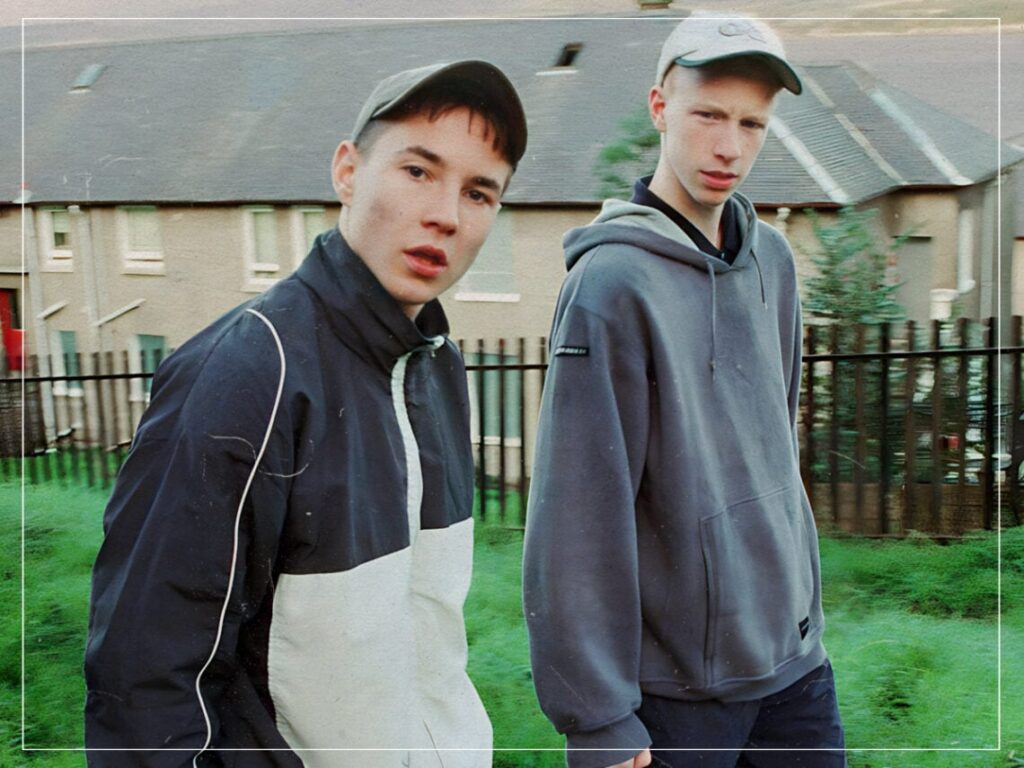‘Sweet Sixteen’: Ken Loach’s 21st century masterpiece
 Posted On
Posted On
(Credits: Far Out / Icon Films)
For over half a century, Ken Loach has been shining a light on the United Kingdom’s socio-political landscape through the lens of cinema, becoming one of the nation’s greatest and most respected filmmakers as a result. Sweet Sixteen is right up there with his best, and at the very least, it’s one of the finest British films of the 21st century.
Playing the lead in a Loach picture is a daunting task for any actor, never mind a first-timer, but Martin Compston was a made man after debuting as Liam. More than 20 years later and his career is still going strong, with the buttoned-down auteur having always displayed a keen eye for talent.
Unfolding in the bleak and unforgiving surroundings of adolescent Greenock, Compston’s protagonist is eagerly awaiting his mother’s release from prison so that they can try and build a better life together away from the cycle of drugs, desperation, and despair they’ve found themselves in.
Needless to say, her boyfriend and his grandfather aren’t quite so keen to leave their main income stream behind, giving Liam a battering when he refuses to smuggle drugs into jail for her to distribute ahead of a visit. Unfortunately, escaping his grim reality requires capital, which forces Liam to become what he despises by selling them himself, which he acquires by stealing them from his mother’s partner, Rab.
Rough around the edges and entirely realistic in its reflections of modern-day working-class life, not to mention the pitfalls substance abuse issues and petty crime have caused for those who live in suffering areas, Sweet Sixteen was deservedly nominated for the Palme d’Or while generating controversy on home shores because of the sheer level of profanity contained within.
The BBFC issued the film with an 18 certificate thanks to more than 300 utterances of the word fuck, although anyone that’s actually been to Greenock or Port Glasgow knows fine well that if anything, Sweet Sixteen didn’t quite reflect the profanity-laden verbiage that can be heard on every corner west of Langbank right through to the windswept shores of Gourock.
Realistically, Liam takes the only opportunity his circumstances can provide to try and extricate himself from an endless cycle of drugs, poverty, and poor prospects that the majority of his peer group show no interest in actively trying to avoid. It’s a damning indictment of how the system regularly fails those in its most impoverished areas, a recurring theme of Loach’s career that remains as pertinent now as it did in the 1960s.
Sweet Sixteen is reflective of how mass unemployment and the collapse of previously-thriving local industries have crippled not only the economy but entire generations of locals. Liam and his friends have a minimal education, no job, and no reason to view a future beyond the next 24 hours, and when he takes it upon himself to try and create one, it doesn’t exactly go according to plan.
Loach has never been one tacking on a happy ending for the sake of it, and if anything, Sweet Sixteen deserved to end on a more sombre and downbeat note. It would have been unrealistic for Liam and his mother to ride off into the sunset together with their new life looming just over the horizon, because as harsh as it is to suggest, it’s also entirely true to say that life at the lower end of the socio-economic ladder rarely works out that way.
[embedded content]


